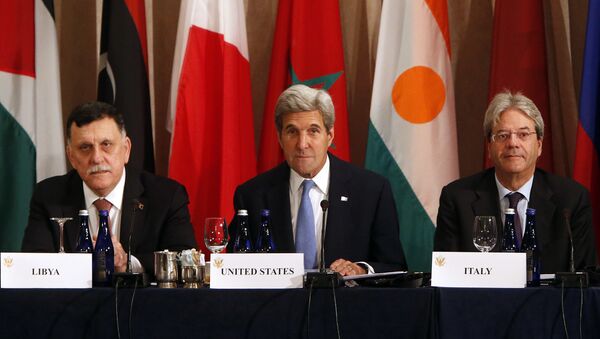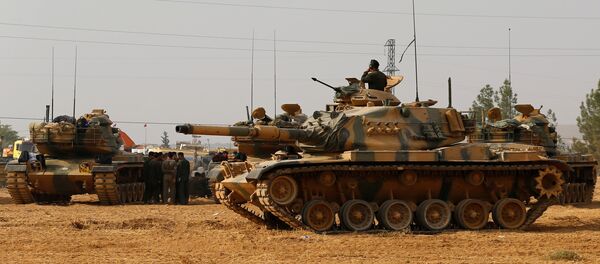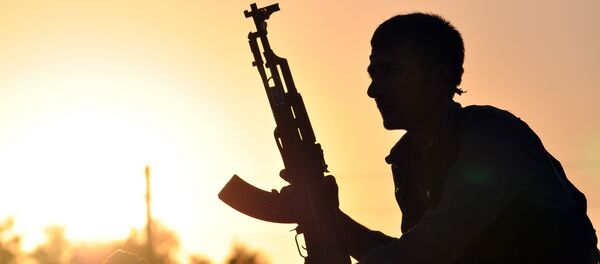Radio Sputnik’s Loud and Clear spoke with writer John Wight about what the future holds for the embattled region.
Iraqi Kurdish Prime Minister Masoud Barzani recently told a German newspaper, "The time has long been ripe for it but we are currently concentrating on the fight against Daesh. As soon as Mosul is liberated, we will meet with our partners in Baghdad and talk about our independence."
Wight said the breakup of Iraq is imminent, “Closer than it ever has been.” He also noted similar moves towards Kurdish independence happening in Rojava, an autonomous Kurdish region along Syria’s Turkish border.
"So there are attempts, in Iraq and Syria, to use this conflict [in Mosul] and the resulting chaos to establish permanent Kurdish states. Unfortunately, what both are doing, they’re relying on US imperialism to do this so this involves treachery on their part. And I don’t think the Syrians or Iraqis will be made to overlook that treachery."
Loud and Clear host Brian Becker pointed out that current issues in the Middle East can be traced to the Sykes-Picot agreement that was signed a hundred years ago. This secret agreement between France, Britain and tsarist Russia saw the three nations divide the remnants of the splintered Ottoman Empire.
Asked how Washington would view Kurdish independence, Wight replied, "I think the US is using the Kurds as ground forces in Syria and Iraq and I think they will abandon them as soon as that use is over." He suggested that the United States "Wants to assert domination in the region after its defeat in Iraq in 2003, and so the chaos that has resulted on the back of the Arab spring has allowed the US to try and use proxies to do what they can’t do via hard power."
He offered that US interest in Mosul, a Daesh stronghold since 2014, is part of a scheme to gain access to Raqqa, which could serve as a new outpost of US authority in the Middle East.
"If Mosul falls, and if the US continues the offensive into Raqqa, who are the military forces that would be fighting with the United States to recapture from ISIS? What would be the role of the Kurds?" asked Becker.
"I think the Americans will be looking to Istanbul to help them," Wight said. "They’ll be looking to the Turks, because they have a large organized Army, and military armour that can be sent to the region and deployed quickly and the Turks are very keen to be involved in the liberation of Raqqa, so they’ve got their own regional ambition in that regard."




